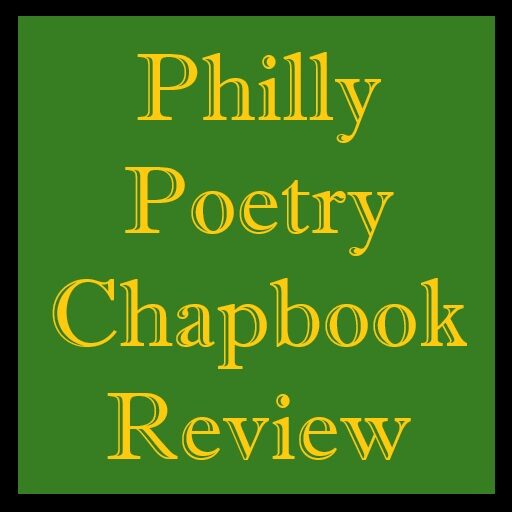Desire/Halves
by Jaia Hamid Bashir
Nine Syllables Press, 39pp., $12.95
In “Con la Serpiente” (“With the Snake”), a poem primarily in English, the Pakistani-American poet Jaia Hamid Bashir repeats a single Spanish phrase three times in succession: “Mi lengua es esta serpiente Mi lengua es esta serpiente Mi lengua es esta serpiente.” Avoiding translation preserves the double meaning of lengua as both “tongue” and “language,” in twin phrases that herald the book’s sustained focus: “my tongue is this snake” and “my language is this snake.” Such direct metaphor and multilingual dexterity are the hallmarks of Desire/Halves (2024), winner of the Nine Syllables Press Chapbook Prize. Bashir’s elegant debut collection investigates identity as the result of choices between individual appetites and cultural frames. Twenty-five lineated poems invite readers into the process of negotiating uncertain relationships to multiplicity—or, to use the poet’s words, the process of “searching for variations / of hunger to speak to myself.”
The book’s second poem, “Marrow of Mercy,” establishes the conflicts of embodiment in a series of tercets written using English, Spanish, and Urdu. Careful word choice repeatedly directs attention to little frictions between subject and setting, as when the speaker asserts, “[e]ating is an obedience / to this one body. I only exist / second-hand.” In cases where the “one” body of the speaker desires something in conflict with the “second-hand” affordances of social existence, how does a divided subject prioritize allegiances? Specific scenes answer the question by illustrating individual choices, as in the poem’s concluding stanzas:
Ultimately, I want to be eaten
with gentleness in my departure, as I was
nurtured upon arrival. When I was young, Ma
cooked mutton. Despite its braying, I tied
a pretty ribbon, a token of tender despair,
around its neck the evening before goat-Eid.
The speaker’s “token of tender despair” is a personal act of compassion, carved in what room for maneuvering the dominant culture allows. That this cascade of memory is triggered by a mundane act years later (“[r]eleasing the half-eaten olive from my lips, / to create a goat’s eye in the center / of my plate”) only reinforces the enduring impact of such choices on their makers.
Many of Bashir’s poems also examine the enduring impact of choices on language itself, using artifacts of vocabulary as a window into lived experience. “On Borrowing Noam Chomsky,” a short poem of couplets alluding to the intellectual giant of both linguistics and politics, presents readers with a claim that transcends the multiple tongues employed:
I only know one thing:
the most beautiful word
in any language
is the name of your beloved.
Although the beloved in this poem is another person, there is no shortage of symbols in the text that function interchangeably as objects of desire. Several are found in “How to Make an Ariel,” a poem alluding to the mermaid caught between worlds. A mixture of images (“[r]eading Shakespeare and practicing Urdu // in the bathtub”), sensory details (“[t]he wet // humidity of my foreign palms”), and abstractions (“[a] rolling wave of unknowing”) vividly render a contemporary narrative of contradictory longing. When the speaker confesses in metaphor, admitting, “I’m an unfaithful alphabet,” she offers readers rich layers of implication. What does it mean to be an alphabet—an instrument of cultural reproduction? To what or whom should a cultural instrument be faithful? What actions could be considered transgressive?
Bashir does not attempt to answer such questions directly; instead, readers must trace their own outlines in the book’s mosaic of figurative language. This seems fitting, as different members of diasporic communities don’t hold uniform opinions. What her speaker does make clear, however, is a keen awareness that limitation and multiplicity are sides of a coin. In “Madonna Arms,” an exploration of things stored in “[t]he dark garage / of my heart,” the speaker confesses,
What I want most
is to have multiple limbs. A litany
of different hearts. How much
can I hold?
The religious connotations of “litany,” a word with roots in European antiquity, commingle with imagery of the many-limbed god, an iconographic style with roots in South Asia. The speaker later adds, “I want tallies for limbs. I want to be / a godstorm.” If divinity is the capacity for holding multiple desires at once—even conflicting ones—then humanity may be understood as the limitation of forced choices.
Desire/Halves provides a vulnerable depiction of how it feels to face competing choices as a divided subject. “I crafted a private alphabet,” asserts the speaker of “Divinities,” a statement that reflects the powerful contribution of the poet’s multilingual capabilities to this text’s unique identity. Even more distinctive, however, is her use of analogy to illustrate tension and connection. “Metaphor’s raw flesh is shaped / into something unlike any animal,” says the speaker of “The Passenger,” before concluding, “I am / startled by beauty’s lawlessness.” The same can be said of Bashir’s voice, which this chapbook announces as an exciting addition to the global chorus of contemporary literature: startling, and beautifully unique.
About the Author
Jaia Hamid Bashir is a South Asian artist whose work has been featured in publications such as POETRY, American Poetry Review, The Rumpus, The Arkansas International, Black Warrior Review, Denver Quarterly, and Image Journal. A graduate of the University of Utah and Columbia University, she lives and writes in the American West with her partner.
Contributor Bio

D.W. Baker is a poet, editor, and teacher from Saint Petersburg, Florida. His poetry appears in Identity Theory, ballast, and Sundog Lit, among others, and has been nominated for Best of the Net. He reads for several mastheads including Variant Lit and Libre. See more of his work at www.dwbakerpoetry.com

Contents
Book Excerpt: The Prize of Québec by Jennifer Nelson
“I tend to lean into the transconstitutory powers of ekphrasis. … Only in poetry can one go to the moon in a way that critiques the quest for the moon.” Read a poem from Jennifer Nelson’s new collection from Fence Books, On the Way to the Paintings of Forest Robberies.
Chapbook Poem: This Is How They Teach Us How to Want It . . . by Shanta Lee
“This poem explores the levels of our participation in handing ourselves over, often to the people, places, or things that deserve no such delight.” Read a #poem from Shanta Lee’s new book from Harbor Editions, This Is How They Teach Us How to Want It . . . The Slaughter.
Three Poems by Jonathan Fletcher
“Instead of having to choose between religion or the LGBTQ community (which I know many member of the latter feel they have to do), I think it is possible (and maybe even biblical) to integrate both into one’s life.” Read three original poems from Jonathan Fletcher, along with words from the author.
What Happened? On You are Leaving the American Sector by Rebecca Foust
“Rebecca Foust’s new chapbook of poems has a strange prescience. … Foust isn’t alone in making the obvious connection between Trump’s first term and Orwell’s dystopia.” Read the full chapbook review by new contributor Rick Mullin.
‘What if we started creating together? What if we looked at who we are from the side and saw a much more complete and honest perspective?” Read four poems by poet Sarah E N Kohrs, along with words from the poet.
Book Excerpt: Challenger by Colleen S. Harris
“If we look beyond the voyeuristic tendency to focus on the tragedy, what might we see? This poem was a chance for me to zoom in on the calm before the storm.” New poem from Colleen S. Harris’s new book from Main Street Rag, The Light Becomes Us, along with words from the poet.
Chapbook Poem: What I Did This Summer by Elinor Serumgard
“I love New Year’s and the promise of a new start, but I like to remind myself that you can start fresh at any point throughout the year.” New poem from Elinor Serumgard’s chapbook from Bottlecap Press, Analogous Annum, along with words from the poet.
Four Poems by Christa Fairbrother
“Since women aren’t allowed the power of our anger, we take it out on each other, and that’s what this poem is hinting at.” Read four poems by Christa Fairbrother, along with words from the poet.
Multilingualism and Metaphor: On Desire/Halves by Jaia Hamid Bashir
“Bashir’s elegant debut collection investigates identity as the result of choices between individual appetites and cultural frames. … [It] announces an exciting addition to the global chorus of contemporary literature.” Read D.W. Baker’s full review.
Five Poems by Jane Ellen Glasser
“In my fantasy world, I would be able to communicate with the animals I see every day.” Read five naturalist poems by poet Jane Ellen Glasser, along with a few words from the poet.
Book Excerpt: Ars Poetica by Leigh Sugar
“[C]ould there be, a poetry that does investigate the body, without explosion? Maybe even with an effort towards reconstruction?” Read an excerpt from Leigh Sugar’s book, FREELAND, from Alice James Books, along with words from the author.
“…she has a sense of style, a modicum of grace, and she recognizes her place in the cosmic order, where revolution rules every other Wednesday and twice, of course, on Sundays…” Read three poems by Bart Edelman along with words from the poet.



